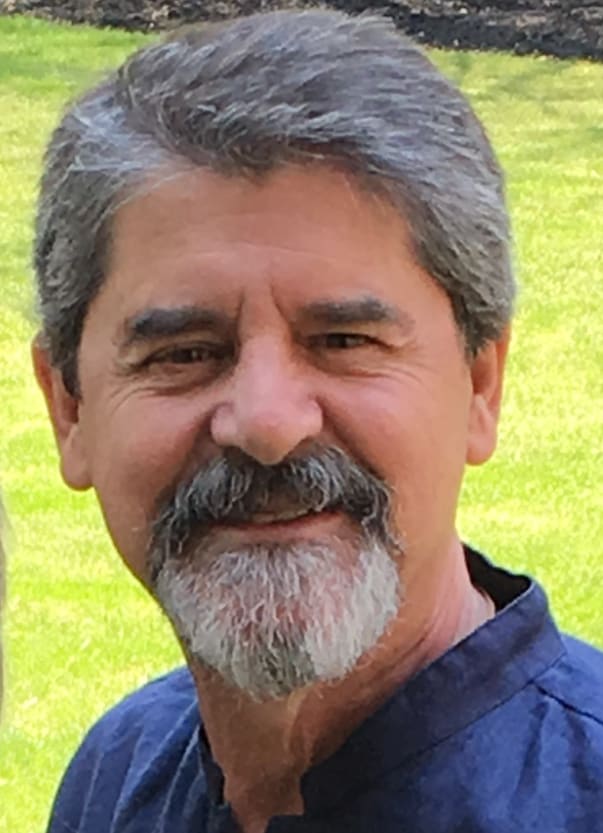The Hard Way, Kid
– Non-Fiction by Jerry Il’Giovine – March 20, 2019

DEAR OLD WEST TECH, WE’LL ALWAYS LOVE YOU. It’s the opening line of my high school alma mater. I probably sang the damn thing a thousand times, but the first was in 1968. West Technical was not only the largest school on the west side of Cleveland; it was once the largest high school in Ohio. A massive state of the art public school with programs providing employable skills to those bound for the workforce after graduation, including an impressive selection of vocational trades. In addition, the school offered a college prep program for those seeking higher learning. There was something for everyone and each student chose a program to fit his or her needs.
Yet somehow during my first year, I found myself assigned to the Industrial Arts Department, and for the life of me, I don’t know how the hell I got there. Nevertheless, the trades are noble and valuable occupations, and while I wasn’t really interested in machine shop, welding, printing and all the rest, that’s where I settled, indifferent to my circumstances, spending a good portion of each day in the basement of the school where most of the technical training rooms were located.
I obviously hadn’t given any thought to my future. Maybe growing up in a working-class Italian neighborhood made my post-high school strategy seem rather uncomplicated. There was no shortage of skilled laborers in our community or my family for that matter, and there appeared to be a fair amount of construction work in the foreseeable future. So, who needs a school guidance counselor? The writing was on the proverbial brick and mortar wall.
My father, Gennaro, was a young barber when he came to America from the old country, but he jumped at the chance to do construction work when a friend told him he could easily double his income. He became highly skilled at cement and brick masonry, eventually branching out on his own. Everyone called him Jerry by the time I was born, so it’s the name he gave me, and by the time I entered high school, customers and colleagues were routinely calling the house asking for Jerry, now a well-established and reputable tradesman in the business. So you see, finding employment with him or one of his paesans would be too easy, and then I’d simply train on the job. Hell, prospective employers were calling my house literally before I even graduated. I’d let nature take its course.
“Jeddy?”
“Oh, hello, Mr. Leone. Pop is out back in his garden. I’ll go get him.”
“No, Jeddy, I call for you. You need da job? You pour concrete, no?”
“No, well I mean, I’ve been on a couple small jobs, but those were on weekends with my dad. I’m still in school.”
“Ah, you gotta stay?”
“Yes, I’m going to stay and graduate.”
“Okay, okay. You stay Jeddy, but you call me first. You capisce?”
“Yes, I understand, Mr. Leone. Thank you.”
These calls only reinforced my belief in fate.
Yet, surprisingly, Pop had different ideas for me. He wanted an easier life for his only son. Despite having the strength of a diesel bulldozer, he’d come home exhausted every night and stretch out on the floor in front of a fan until dinner was ready. One evening, I sat down beside him to ask about his day. Instead, he gave me a short but powerful piece of advice I’d remember the rest of my life. It was a warning from the heart, padre a figlio, father to son, to use my brains instead of my back.
He spoke them with his eyes closed. “Make the people pay for your mind,” he said, “or you will be sorry. Not right away, but it will come.” Then he looked at me and said, “Maybe then it’s too late, eh figlio mio? Go to college.”
These simple words resonated in my mind, sending me into a deep dive of wondering what the hell I’d been doing at school in those subterranean workshops. Besides not being interested in the work, I wasn’t very good at it either. So far, I only knew what I didn’t want to do with my life, and yet these were rapidly becoming the most likely prospects. It also became quite clear where college fit into the equation. Without any prerequisite classes, I simply wouldn’t be eligible.
As for my friends, many had colonized in the classrooms upstairs, spending the better portion of their days shuffling between business and college prep courses. I wondered about the options they’d have after graduation, ones not available to me.
It was a sinking revelation as regret settled in and I worried it might be too late to do anything about it. In order to give myself even half of a chance, I had to position my studies toward something more in line with business and at least the possibility of college. Now, the question was how to go about it.
Of course, the only idea I had involved my guidance counselor. I’ve heard him speak to groups before, but we never actually spoke face-to-face. Not only would we have to meet, but I also had to admit my current course of study was an oversight, no, a huge mistake on my part that I let go far too long. This wasn’t going to be easy for me. I enjoyed my anonymity at school and was perfectly content flying below their radar.
I gathered the courage to trek up to the office of Mr. Hubbard. He was sitting behind his desk in the middle of a good laugh with one of the student athletes. The varsity jock was tilted back on the hind legs of his chair with one foot propped up on the desk. I quietly stood in the doorway waiting to be acknowledged. When I wasn’t, I softly interrupted.
“Excuse me.” They both quickly turned to look up at me.
“Can I help you?” Mr. Hubbard asked. I’m sure he thought I was lost.
“Uh, well, I was wondering if I could talk to you about changing my major.”
“Changing your major?” he repeated, in a rather ambiguous tone. The jock snickered through his nose. Their responses put me on the defensive.
“Maybe I should come back some other time.”
Mr. Hubbard held his index finger up at me and then looked at the jock. “I’ll catch up with you later.” The big man on campus slowly set his chair down on all fours, stood up and waited for me to step aside. We bumped shoulders when I didn’t move fast enough. “Well, come in and sit down,” the counselor said, waving me forward and gesturing toward the chair. “Now, who are you again?” He rested his elbows on his desk, cupped his hands under his chin, and waited for an answer. That’s when my mind went completely blank.
Of course, he had no idea who I was and why would he? It was an enormous school and I was one unassuming student, partly by design, partly by nature. Counselors usually know the standout students; the ones involved in sports and extra-curricular activities or the super bright, and even the troublemakers. I was none of the above.
I don’t even remember how I started explaining my dilemma, but I do remember the face he made causing my monologue to fizzle out like a dud firecracker. I call it the stupid look. He raised his eyebrows, tilted his head and smirked. I felt my face flush and it stopped me dead in my tracks.
“And you waited until now to decide this because?” He held the last syllable.
“I don’t know,” was my poor but honest reply. I sensed his lack of empathy and he looked quite dismissive. I had to think fast and say something compelling or this was going to be a very short consultation.

“I come from a large family of builders,” I blurted out. “My father is in construction. All my uncles and cousins are in construction. My grandfathers were too. So were their fathers. They don’t need another builder. They want a businessman in the family.”
It was mostly true, and the best I had to offer. It was also enough to change the expression on his face. I had to keep my momentum going.
“My father wants me to use my brains,” I added, “not my back.” It drew a slight smile from him. “If I don’t do this, I’m going to be sorry for it the rest of my life.”
Now he looked much more considerate and after a short pause, pursed his lips and lightly nodded.
“Okay, tell you what,” he said. “Let me at least pull your file and take a quick look. How do you spell your last name?” He grabbed a pen and a small piece of paper. I spelled it for him twice, and he still wrote it incorrectly. “French?”
“Italian,” I answered.
“Of course, Italians and architecture.” He smiled and stood up. “I’ll be right back.”
I sat quietly reminding myself why I was doing this and trying not to care if he thinks I’m a big cafone. He was gone for quite a while.
“Sorry it took so long,” he said on his return. “It was filed incorrectly.”
He sat down, opened a folder and began leafing through the papers.
“What’s that?” I asked.
“Hmm? Oh, it’s your permanent record,” he muttered, never looking up. I heard of permanent records but thought they were just myths, used primarily as a threat to keep students in line.
I watched his face, wondering if another stupid look was coming. He stopped once and peered at me above his reading glasses.
“Do you plan on going to college?”
“I, I think so. I’d like to have the option.”
“You may fall short on credit hours. This could be a problem.”
He stared at me, lightly rapping his fingers on the desk, then browsed a few more pages. He removed his reading glasses and rubbed his eyes.
“Look, I’ll be honest with you,” he said, leaning forward again. “You want to leave the trades for business. They’re two very different curriculums, different animals, you see. We’re talking apples and oranges here. Do you think you can handle a drastic change like this?”
“I don’t know.”
He squinted at me as if the answer was written on my face.
“You’re doing this the hard way, kid.” He waited for my reaction, so I improvised once again.
“Sometimes it’s the only way, Mr. Hubbard.” I’m not sure he liked my response, so I gave him a slender grin. There was another moment of silence and more finger rapping.
“You do understand there’s no turning back if we do this, right?”
“I understand, thank you.”
“I’ll see what I can do,” he said, standing up, “and I have to call your parents.”
I left his office relieved it was over, and nervous for what I had just set into motion. This was by far the most pivotal thing I had ever done for myself, not to mention a real boost for my confidence.
That evening my mother mentioned the phone call. “Oh, school called today and said you want to change your classes, so I said it was okay with me if that’s what my son wants, but then he said something I didn’t understand about you running the family business someday.”
“He said that?”
“Yeah, do you know what it means?”
I smiled. “I have a good idea.”
It wasn’t long before typewriters, adding machines and accounting ledgers replaced welding rods, lathes, and grinding wheels. Now, classes related to bookkeeping and business filled my days above ground. I’ll admit there were times when I struggled a bit with the transition. It seemed I was always scrambling to keep up with my new classmates.
Nevertheless, the caption under my high school yearbook picture lists my course of study as Business. No interests, hobbies or sports, no quotes, no honors or awards, not so much as a nickname, and they didn’t even get my last name quite right, but none of it really mattered to me because I graduated, went on to college, and wilfully enrolled myself into the Education Department.
Upon graduation, I accepted a teaching position in a quaint little school in the suburbs. After six enjoyable years, I attended night school to explore a relatively new industry known as Data Processing, later renamed Information Technology. I was enticed into this more lucrative and booming profession much the same way construction lured my father away from his barbershop, only I became the architect and builder of mainframe computer software. The tools of my trade were a keyboard and my imagination. An office served as my construction site until I eventually retired in 2014 after two rewarding careers.
Dear old West Tech survived eighty-three years before closing its doors to students in 1995. Today, this historical building contains private lofts, a school museum and is home to the West Tech Alumni Association. The crimson and gray spirit is still very much alive with scheduled tours and events, a newspaper, scholarship program, Hall of Fame, and even more. Go Mighty Warriors!
About the Author – Jerry Il’Giovine

JERRY IL’GIOVINE is an Italian-American born and raised in a colorful, ethnic neighborhood on the near west side of Cleveland, which set the course for an interesting, fun, and profound look back. He is presently writing a series of creative short stories based on his memoirs with plans to publish upon completion. This story is one of the chapters. He is a retired teacher, IT Analyst, soccer coach, and currently resides with his wife Judith on the east side of town. They enjoy spending time with their children and their spouses, the dogs, but most of all the newest addition to their family, grandson Luca Joseph.
Did you like this non-fiction piece by Jerry Il’Giovine? Then you might also like:
The Red Jeep
No Pain, No Gain
Gelato and Frost
Recipe for Saying Goodbye
To check out all the non-fiction available on Dreamers, visit our non-fiction section!